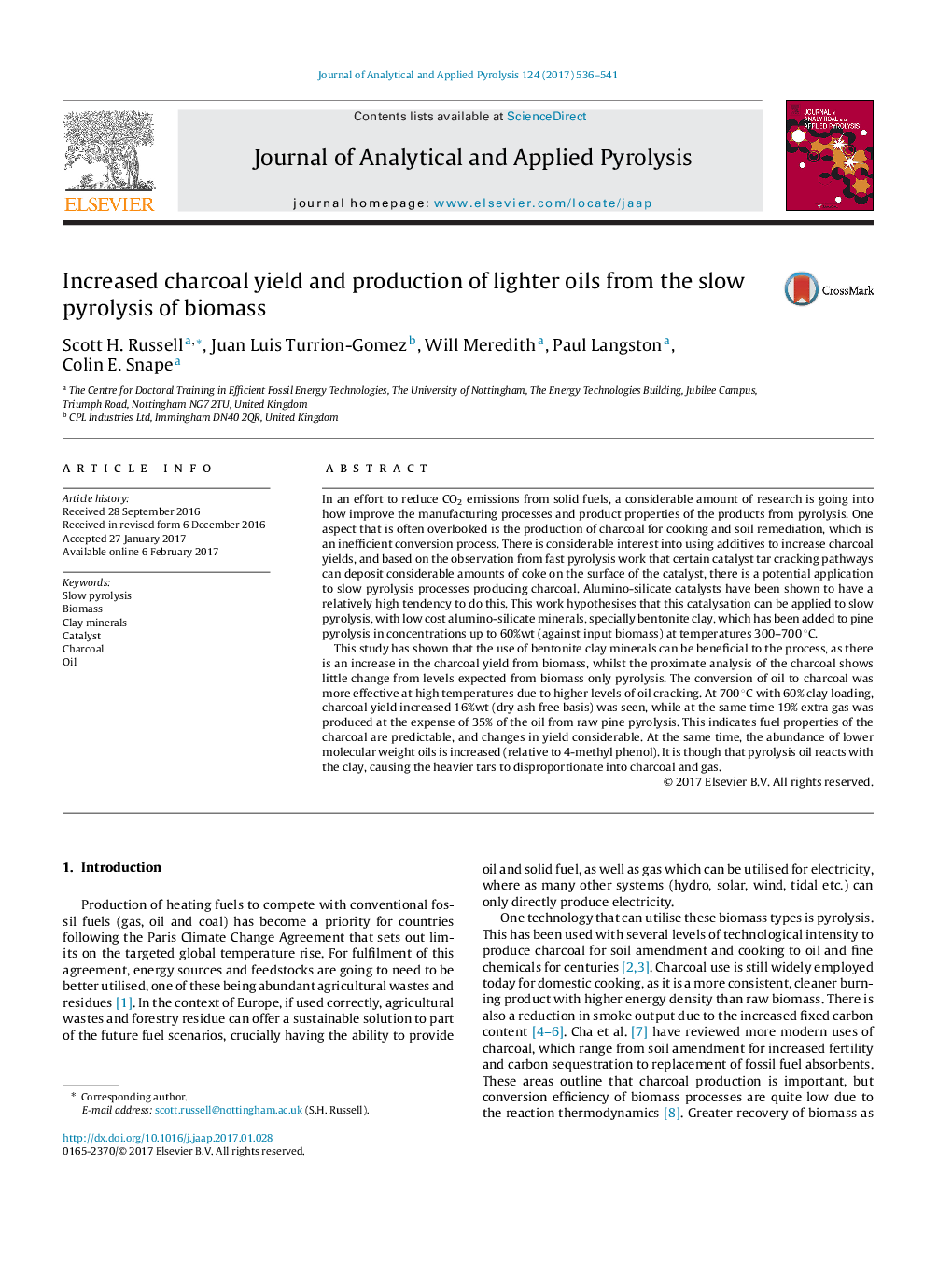| کد مقاله | کد نشریه | سال انتشار | مقاله انگلیسی | نسخه تمام متن |
|---|---|---|---|---|
| 5134626 | 1492953 | 2017 | 6 صفحه PDF | دانلود رایگان |

- Gray King Slow Pyrolysis was performed on pinewood with bentonite addition over 400-700 °C.
- Clay addition showed increasing decomposition of heavy pyrolysis oils, into lighter oils, coke and gas.
- Cracking caused by clay produced lower molecular weight compounds of lighter oils.
In an effort to reduce CO2 emissions from solid fuels, a considerable amount of research is going into how improve the manufacturing processes and product properties of the products from pyrolysis. One aspect that is often overlooked is the production of charcoal for cooking and soil remediation, which is an inefficient conversion process. There is considerable interest into using additives to increase charcoal yields, and based on the observation from fast pyrolysis work that certain catalyst tar cracking pathways can deposit considerable amounts of coke on the surface of the catalyst, there is a potential application to slow pyrolysis processes producing charcoal. Alumino-silicate catalysts have been shown to have a relatively high tendency to do this. This work hypothesises that this catalysation can be applied to slow pyrolysis, with low cost alumino-silicate minerals, specially bentonite clay, which has been added to pine pyrolysis in concentrations up to 60%wt (against input biomass) at temperatures 300-700 °C.This study has shown that the use of bentonite clay minerals can be beneficial to the process, as there is an increase in the charcoal yield from biomass, whilst the proximate analysis of the charcoal shows little change from levels expected from biomass only pyrolysis. The conversion of oil to charcoal was more effective at high temperatures due to higher levels of oil cracking. At 700 °C with 60% clay loading, charcoal yield increased 16%wt (dry ash free basis) was seen, while at the same time 19% extra gas was produced at the expense of 35% of the oil from raw pine pyrolysis. This indicates fuel properties of the charcoal are predictable, and changes in yield considerable. At the same time, the abundance of lower molecular weight oils is increased (relative to 4-methyl phenol). It is though that pyrolysis oil reacts with the clay, causing the heavier tars to disproportionate into charcoal and gas.
Journal: Journal of Analytical and Applied Pyrolysis - Volume 124, March 2017, Pages 536-541